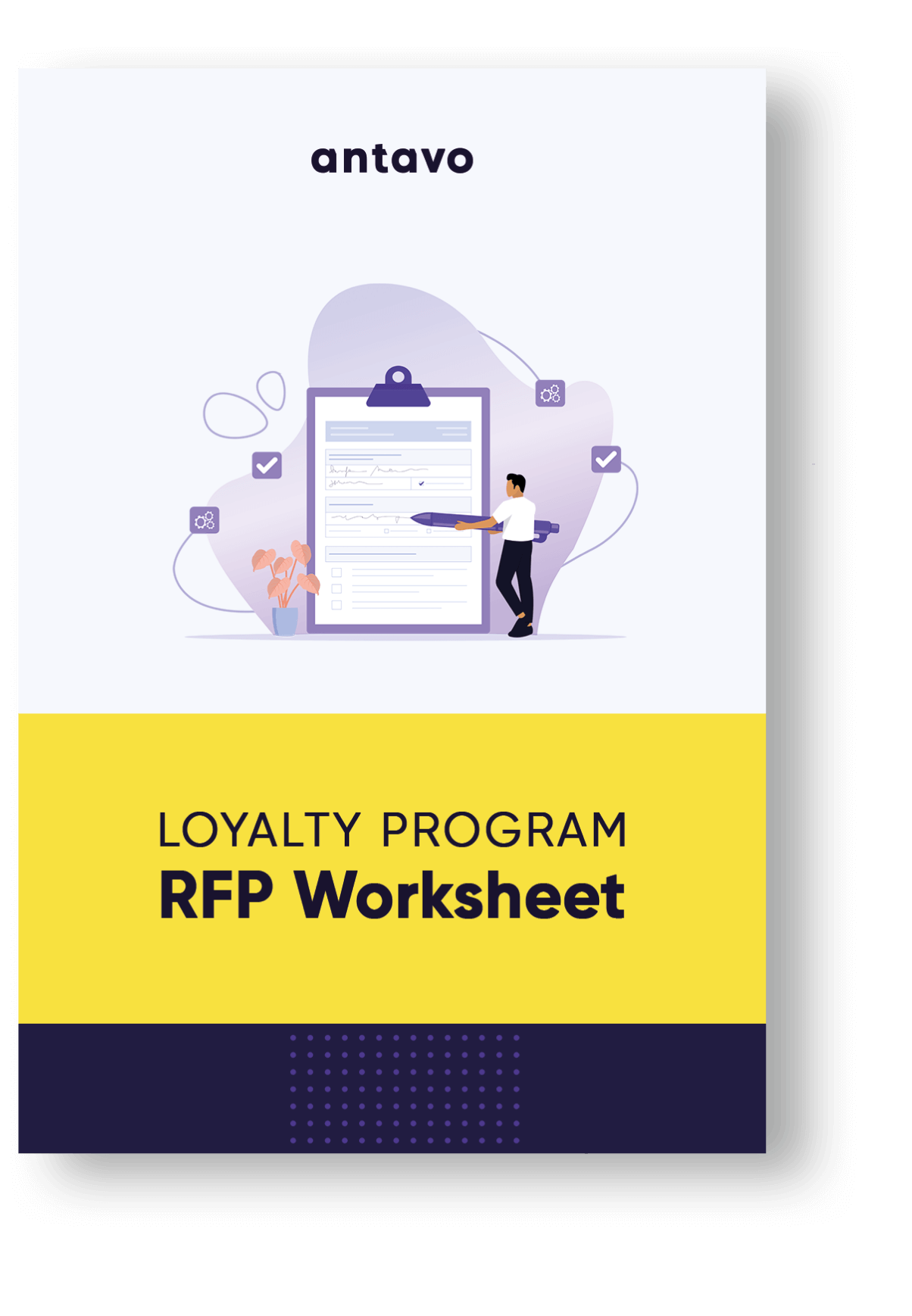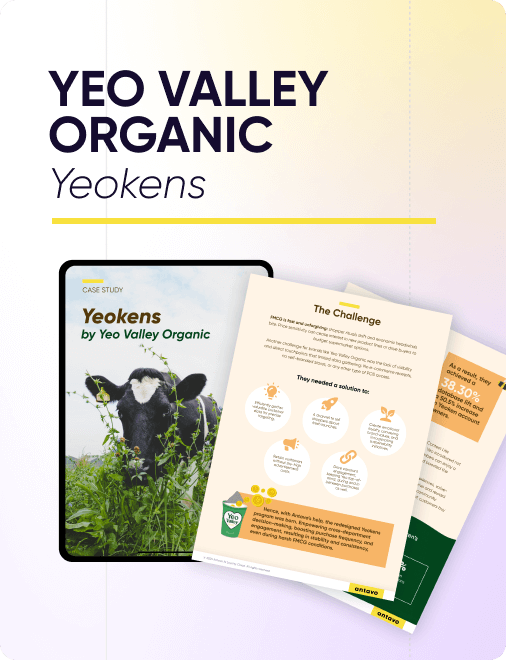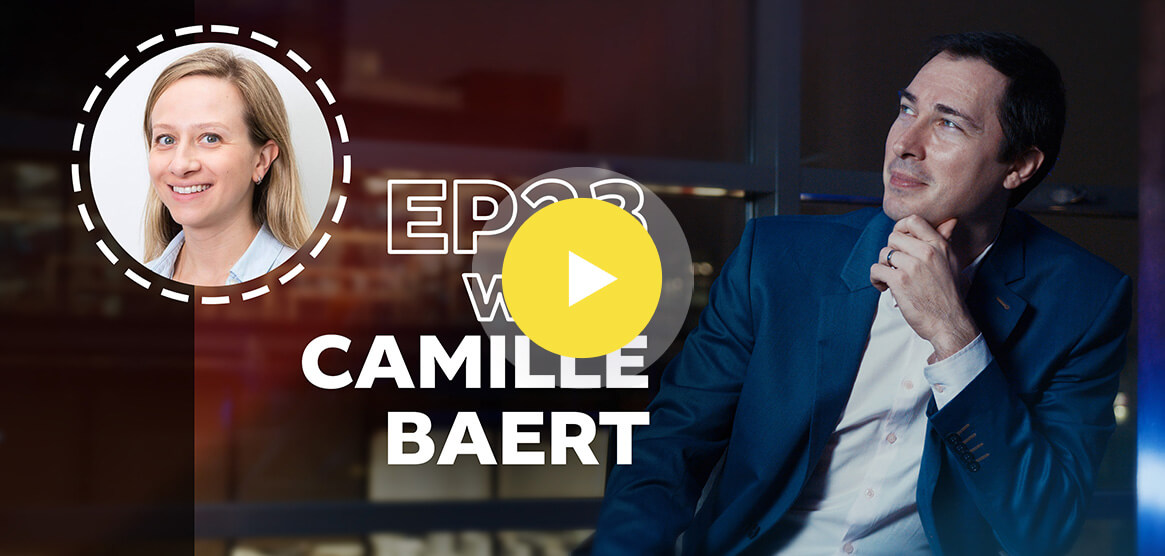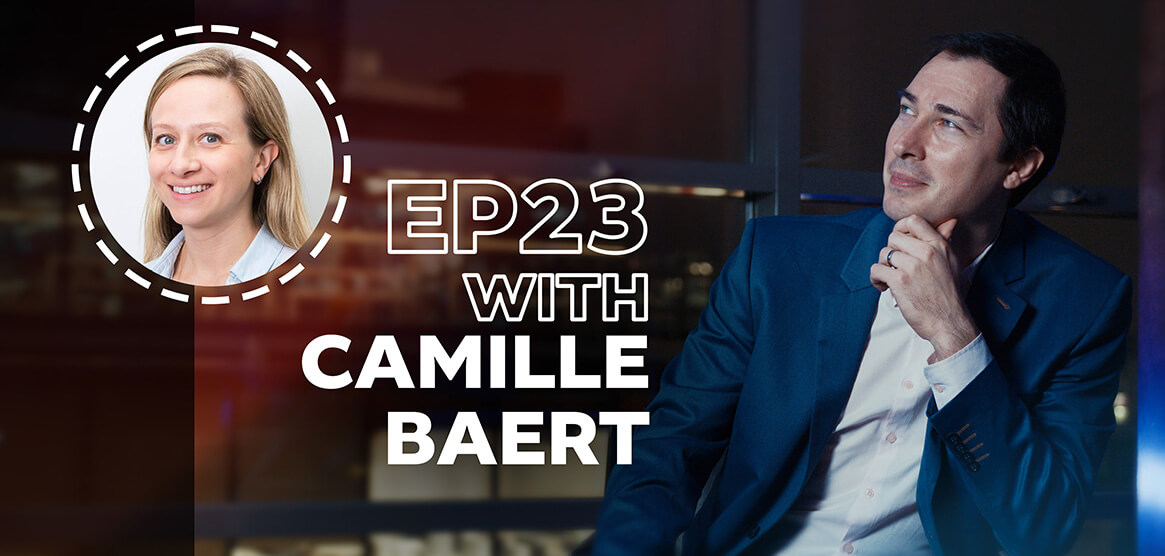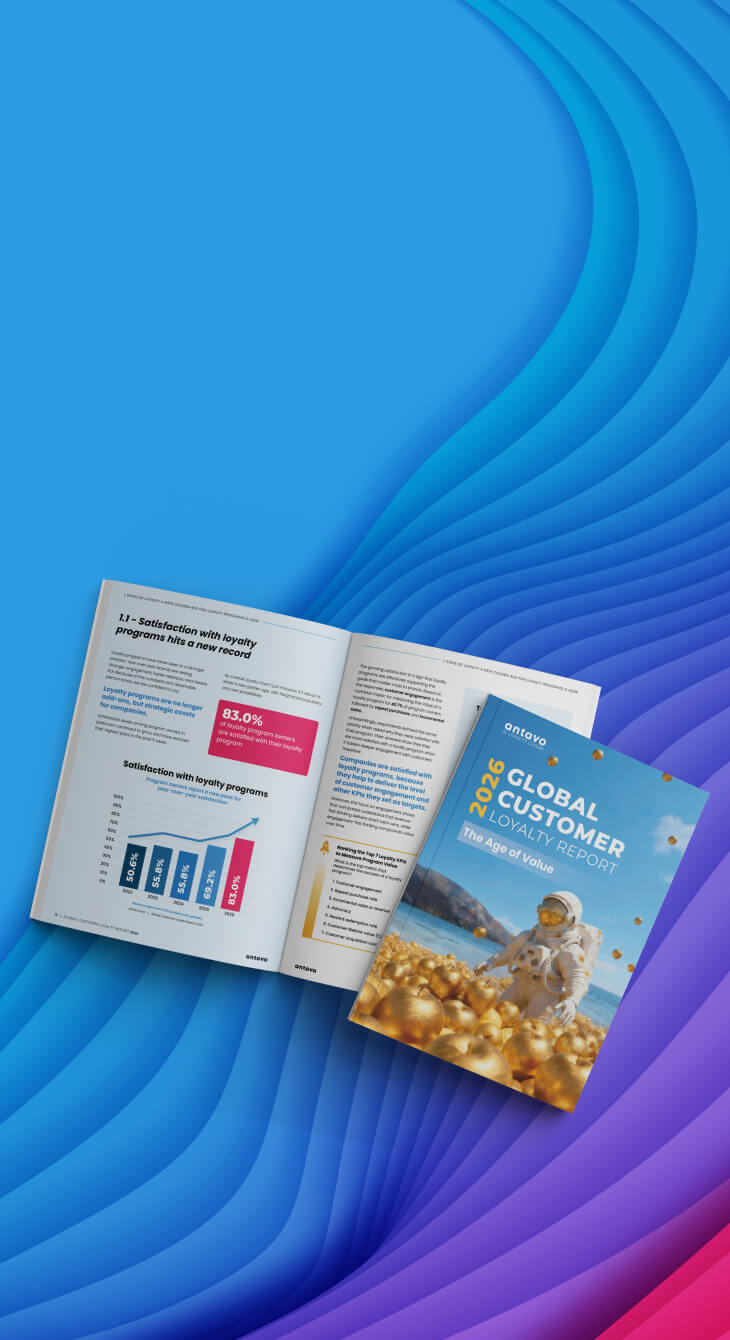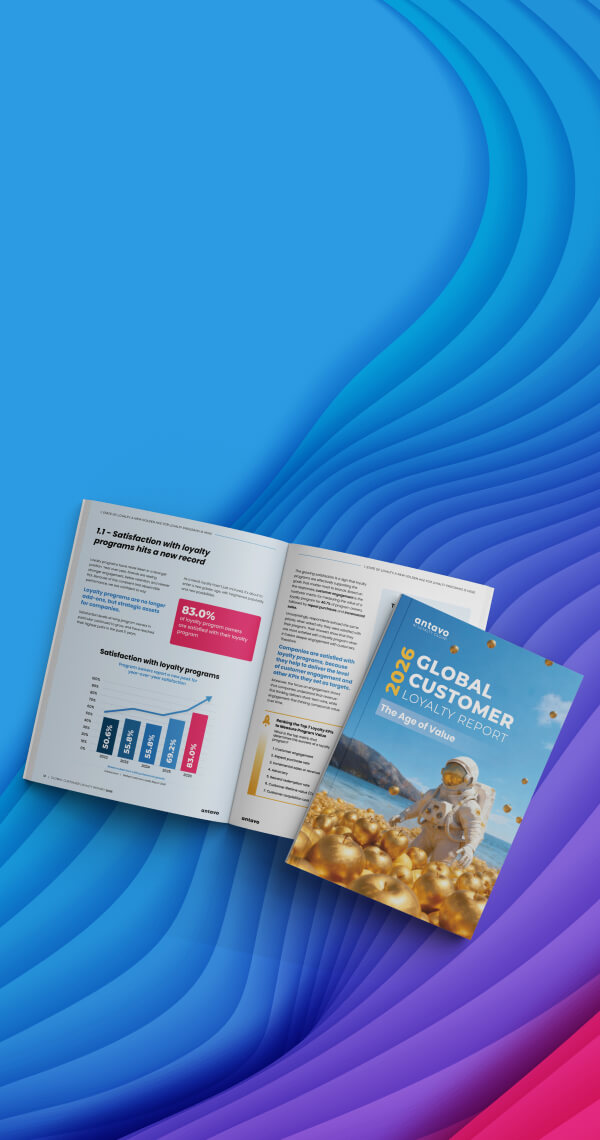In the 23rd episode of the Loyalty Stories podcast, we welcome Camille Baert, Consulting & Digital Marketing Lead at Numberly.
The interview for this podcast has been a valuable source for Antavo’s Global Customer Loyalty Report 2024. Make sure to download it for over 30 statistics on loyalty program trends.
This week, with Camille’s expert insights, we take a look at the exciting mechanism of her favorite loyalty program from Yeo Valley Organic (powered by Antavo), and the reasons behind why more and more companies are adopting a D2C approach in their marketing strategy. She also highlights the benefits of Web 3.0 and which verticals could utilize them the most.
Highlights from our conversation with Camille:
- Card linking is well on its way to becoming a key factor for loyalty platforms
- Giving the choice of reward selection to customers is a modern-day must
- Why companies are willing to increase their loyalty budgets
- How loyalty programs support both acquisition and retention
Learn more:
- LinkedIn profile of Camille Baert
- Numberly website
- Read more about Yeo Valley Organic’s Revamped Loyalty Program
- Book a demo with Antavo’s loyalty experts
Gabor
Hi, and welcome to Loyalty Stories, that is Antavo’s podcast on customer loyalty and loyalty programs. I am Gabor Vigh, one of the Partnership Managers at Antavo, and Antavo is a technology vendor that empowers loyalty programs all over the world. We help various great businesses, such as KFC, Benefit Cosmetics, and very well-known global automotive and fashion brands, airports, and so on.
In this Loyalty Stories podcast, we dive into the trends around loyalty programs and customer loyalty. We will talk with industry experts around the world to pick their brains to learn what’s next and what’s new in loyalty programs. Today’s guest is from Numberly, a marketing technologist company whose mission is to help brands to build long lasting relationships with their clients and that includes loyalty.
We are going to talk with Camille Baert, one of the most experienced consulting and digital marketing leads from Numberly, responsible for CRM and loyalty consultancy projects for clients in retail, luxury and consumer goods industries.
So, hi Camille, bonjour, how are you?
Camille
Hi Gabor, I’m doing very well. Thank you so much for inviting me on the podcast.
Gabor
Thank you very much for accepting our invitation. I am very excited to talk about loyalty with you today. But before we dive in, can you please briefly introduce yourself to our audience?
Camille
Yes, so as Gabor said, I’m a consultant and more specifically a senior loyalty consultant and digital marketing lead at Numberly. What we’ve been doing for quite a long time now at Numberly is supporting our clients both in their CRM and retention strategy, trying to make sure that we can leverage data as much as possible to build the most engaging experiences, and also obviously profitable programs for our clients.
Gabor
Great, and because you’ve been in loyalty for quite a while, what would you say, what is your favourite loyalty program and why is it? Is it because of what they offer, is it because of their strategy?
Camille
So I think one of my favorite loyalty program is actually one of and Antavo’s clients, I believe. And I discovered that afterwards.
Gabor
Excited to hear.
Camille
And it is from the brand called, yeah, it is from the brand called Yeo Valley Organic. And it’s a brand that I’ve always feel quite close to. And I truly believe that the loyalty program fits the target markets very well, whether it’s families, younger professionals or other generation.
And what I like the most about the programme is the Yeokens system, so the points system, which is really giving an opportunity to people to burn their points in very, very different ways. And I think my favourite one is the ability to burn points towards games or raffles and then the possibility to gain and to win prizes from really great partnerships. So I would say that’s definitely one of my favorite ones.
Gabor
Great, thank you Camille. My favourite part there is that I can spin the wheel and have a chance to win one or two yogurts. And based on your career, obviously you implemented and enrolled a couple of loyalty programs in the past. What would you say, what is that piece of work that you are the most proud of in your career?
Camille
So I would say one of the pieces of work in Loyalty I’m the most proud of is a work that we’ve done in the past with a Champagne and Spirits company. And they came to us because they wanted to build their first ever loyalty program. And at that time, they were really shifting towards a more D2C approach, both in store and online.
And I think what was the most interesting challenge for us is that we really had to support them in migrating from a commercial proposition, which was almost mostly B2B to a very much more customer centric offering. So, yeah, it was really, really interesting to work with a client that was not used to D2C world, not used to being more customer centric, and really helping them into shifting into those strategies.
Gabor
This question is something that I don’t usually ask. Do you see an increase in number of D2C programs on the market?
Camille
Yes, definitely. I think a lot of brands, especially in FMCG, are really trying to collect more data, especially in a world that is increasingly moving towards less cookies. So I think we know a lot of brands that are really trying to test D2C approaches.
And what is also interesting is that we saw more and more brands trying to build omnichannel loyalty programs in the true way. So really trying to gather together what’s happening online, in store and in between.
Gabor
Do you consider this like a big change in the loyalty space or are there any big changes that you would like to mention?
Camille
So I think in terms of the changes that we’ve seen in the past, I think we’ve seen definitely this shift towards more experiential and human loyalty. So that’s I think quite interesting to make sure that you can offer a value proposition that is very differentiated.
I think very recently as well we’ve seen the emergence of the Gen Z population and I think that’s really shifting pushing brands to really differentiate their offer. I just mentioned before as well the cookie-less world. That’s also going to push brands to collect more zero and first-party data to offer a better brand experience. And I think the last thing that we also noticed at Numberly is that there are more players coming into the loyalty field.
More and more luxury brands, more and more financial services, which are really trying to tackle the question of retention. And I think that’s definitely some of the changes that we’ve seen in the past, which are still continuing now.
Gabor
And did you see anything like surprising or shocking as a loyalty trend or like a loyalty strategy that came up in the past couple of years?
Camille
I don’t know if there’s anything shocking, but I think what has been maybe a little bit not overwhelming, but quite innovative to see is the rise of Web 3.0. I think this migration to this new web is really offering a lot of new opportunities for brands to engage with consumers.
But it’s obviously a brand new world to be able to tackle and understand. So we see a lot of brands coming to us trying to really understand where they can play a role in Web 3.0 and what can be the use of digital tokens, NFTs, and things like that. So I wouldn’t say it was a surprise, but I would say it’s probably something that is really triggering the most conversations and for which brands are really trying to understand where they can get value from.
Gabor
Great, and what do you think, Camille which industry could benefit the most out of web 3 technologies and the metaverse?
Camille
So we’ve seen a lot of luxury players definitely getting into that field, really trying to leverage NFTs and other type of technologies. I think probably the next kind of sector that could go into it is still the consumer goods and FMCG because obviously those brands are very much online, very much interacting with consumers almost on a daily basis.
We truly believe that there’s a lot that they can leverage from Web 3.0. However, we also know that the big challenge is to integrate those activities into the overall CRM system and making sure that technology at the end of the day is serving customers effectively and that we are not just trying to do technology for the sake of it.
Gabor
Great, thank you Cami. And when we look into the future of loyalty programmes, what would you name as the two main trends that we will see in the loyalty space in the next couple of years?
Camille
So I actually have three, if that’s okay for you.
Gabor
Absolutely fine.
Camille
So I just mentioned Web 3.0, so I’m not gonna repeat myself. I truly believe there’s a lot of potential there. What I’ve personally believe will be quite game changing in the future is the rise of card linking technologies. So really transforming the payment card into a loyalty card. I think there will be more and more sectors that will be using it.
And then we’ve seen also in the past a lot of companies trying through the loyalty program to showcase their support towards social and environmental causes. And I think it’s been a little bit of a struggle for companies to really be fully legitimate around that topic. So we really want to be in the future be able to help those companies to truly embrace those causes, and making sure that through the loyalty program, they bring legitimacy.
Gabor
Great insights. Yes, we hear a lot about card linking recently and also I’m very happy that you mentioned the ESG environmental social governance causes. I think this is definitely something that we have seen in the trends and also I think that was one of the main trends in last year’s loyalty report as well.
Yes, it’s really nice to see that it’s still there and it has got space to evolve as well. And when it comes to technologies, because you do have experience working with different technologies as well, Camille what do you think how a loyalty technology company should support all of these new trends and features around loyalty programs? What are the key ones that they are kind of like must have?
Camille
So what I believe is what tech vendors should continue to do is to make sure that they can offer a very frictionless experience to consumers and towards brands, making sure that they do not only take into consideration transactional action, but also any other engagement actions toward the brands, and making sure that it’s very frictionless and seamless in terms of experience.
And then I think, the kind of three other things that we would like to see tech vendors to keep doing is making sure that they offer a platform that allow omnichannel communications and marketing. So that’s obviously quite important for us.
That they can also accept multiple partnerships as a way to redeem rewards, obviously. And then also the ability for those platforms to allow members to redeem rewards in different ways. So not only by burning pawns or using just rewards as discounts, but really allowing members in the future to redeem rewards in different ways. So that I would say are the three things that we would like to see tech vendors to keep doing and improving in the future.
Gabor
Thank you, Camille. And when you mentioned rewards, rewards redemption in other ways, like in an experiential way, for example.
Camille
Yes, yeah, really giving the opportunity to members to redeem their rewards the way they would like to. So, for example, burning points or being able to attend an event or the possibility to donate points to a charity or just using it as a discount, but basically giving the choice to consumers on how they can redeem those advantages.
Gabor
Great, thank you, Camille. And also when it comes to technologies, there’s always kind of like a dilemma that brands face. Should they build it in-house or should they buy a technology? What’s your opinion on that?
Camille
Well, it’s a very good question. I think what we’ve seen as a trend recently in our clients is the ability to deploy pretty fast and to try and test the new offering and the new value proposition in a quicker way. So we’ve seen definitely a lot of willingness to invest into platforms and tech vendors pretty quickly instead of really investing in something more long term and more pricey.
But obviously some of those platforms not necessarily offer the depth of what they’re looking for or all the connections that are needed to the main system. So that’s why I think as number leaders consultant our main job is to ensure that the value proposition that they develop is adaptable to the tech they are looking for, and something that remains simple to launch as a first step. So I would say the first one for sure.
Gabor
Great, lovely to hear that. Someone working for a technology vendor. And when you are speaking with your prospects or clients, what do you see these days? Who’s owning the loyalty project? Who are your main stakeholders at an organization?
Camille
So in terms of the people we interact with on a daily basis to build a loyalty proposition, we would often work with a CRM manager or newly appointed loyalty manager. So someone who has knowledge of the data and how to leverage it. But I would say that decision makers and owners are most of the time CMOs.
But we’ve also seen in the past a few Head of Customer Service as well were owning the loyalty program project, which we found very interesting because they were definitely bringing a new perspective to the project.
Gabor
Oh wow, yeah, this is surprising to me, but makes sense, definitely.
Camille
Yeah, in some ways, yes, definitely.
Gabor
And just kind of like a bonus question on this, so obviously couple of, or maybe lot of brands struggle these days due to the economical climate. How do you see your clients or prospects loyalty budget these days. Are they willing to increase the budget on loyalty or have they, for example, postponed loyalty as it’s like not on top of the priority list? What do you see on the market?
Camille
So we have not seen any brands really postponing loyalty programs apart from those which are struggling from a technical perspective to launch them. But what we really see across the market and across our prospectus client is really a willingness to invest more and more in retention strategy and loyalty programs.
Because as us, they truly believe that, of course, like maintaining engagement and consumers and customers is the best way forward. So we’ve definitely seen an increase. And I think this is also linked to the new regulations in the data market and in the data field.
We truly believe that in the future loyalty programs are going to be the first source of data in terms of zero and first party data. And by collecting this, they will definitely be able to offer better value proposition, better engagement programmes.
And also, we also think that retailers in the future will be able to monetise this loyalty data towards brands and really create strong data collaborations. So we really truly believe that they will keep increasing their investment, but mostly with a data perspective in mind for the future and due to those regulations.
Gabor
This is really nice to hear and I think other loyalty strategists and experts shared kind of expectations in the loyalty space as well, just like you, Camille, that they are trying to implement these loyalty programs to collect data and also trying to make loyalty programs to make profitable.
So try to change, you know, the old-fashioned way that all loyalty is a cost center, but rather it should be a profit center and it can be a profit center now. So if there’s a good concept, I think there’s the technology now that can enable it and help these brands.
What do you see? Will the brands maintain acquisition, customer acquisition at the same level, or will they increase in your opinion in the next couple of months, years.
Camille
So I think they will continue to invest in customer acquisition, but I think brands will probably look to do that for loyalty program, for example, or an engagement program to make sure that they bring value to consumers pretty quickly after those consumers have been acquired, to trigger repurchase.
But I think there will be definitely a demand from the brands to really bring value to those acquisition costs and investment, so making sure that they are available in the future and maximise as much as possible. So I believe that there will be still investment, but in terms of expectations and results, the expectations are really going to be stronger and more strict, also because of the shift towards a cookie-less world.
So yeah, it will continue. But as marketers and as agencies and consultants, there will be more pressure on us to make sure that the data we collect and the consumers that we collect are valuable to the business long term.
Gabor
And put to you a forecast for customer retention.
Camille
Do you mean in terms of, okay, well, I think it’s mostly linked to what I was saying earlier in terms of investing in retention strategies. We have seen something very consistent coming from our prospects and clients since the COVID period. I think most of the brands are really willing in keeping the consumers.
So for me, the investment in customer retention is going to be greater than in acquisition. The work is well done in terms of retention strategies and investment. Naturally, it’s going to bring new customers at lower cost.
Gabor
Great, thank you so much, Camille, for the insights. Is there anything else in mind that you wanted to share with the audience, giving them some advice if they are looking to implement any loyalty programs in the upcoming months?
Camille
I think my only advice would be to secure as much as possible the project internally as a first step. So really trying to engage with all stakeholders and making sure that once you are ready to get into the loyalty world, you get all the support needed because it can be a wild ride to implement those programs.
Making sure that you are aligned in terms of what you want to bring in terms of value proposition, what is the budget that you want to invest, what kind of stakeholders agency you want to involve in those projects. Just making sure that the project is very well wrapped up.
So then you arrive with a strong, almost business case when you start working on it. And this will definitely help throughout the project to build something that means something to the business, but mostly that is customer-centric. So preparation is key.
Gabor
Yes, I think so. So I really share your point of view on that. So brilliant. Thank you very much, Camille, for sharing your thoughts and being here with us today. I really enjoyed our conversation. I had a couple of really great touch points here.
I think that I really liked, especially when we were looking at the future trends with the card linking and social and environmental causes, as you said. But I think one of the greatest trends is that giving the option to the customers to choose their own reward redemption. I think this kind of flexibility and freedom that we can give to loyalty users is one of the key things.
And also for brands, the ability to collect zero party and first party data, especially after the cookie apocalypse that is coming soon. So yeah, definitely I see as well that loyalty programs can fill up this gap, and still provide valuable data on the customers. So thank you very, very much Camille, thank you for sharing your thoughts with us today.
Camille
Thank you so much, Gabor. It was a pleasure to be part of this podcast and I look forward to receiving the new report.
Gabor
Thank you, Camille. And for the viewers, wherever you listen to us, be it on a podcast platform, YouTube or LinkedIn, please like this podcast, like our channel and also subscribe to our channel, so this way you can get the notifications when the next episodes are out, and also tell us what you think about loyalty in the comment section below.
Visit Antavo.com to discover your next loyalty software. Antavo is a next-generation loyalty program technology company used by global brands such as KFC, Benefit Cosmetics, automotive and fashion companies, and airports all over the world.
But also, don’t forget to visit Numberly’s website at numberly.com and also check out Camille’s LinkedIn page to find out more exciting details of her work.
Thank you and see you on the next one. Bye for now!
